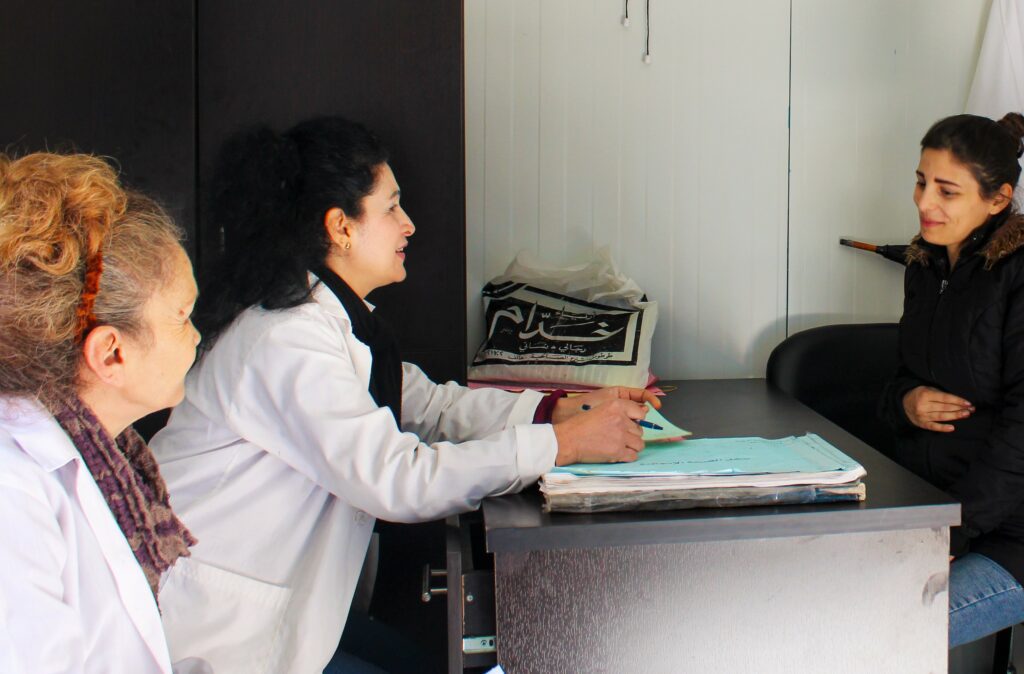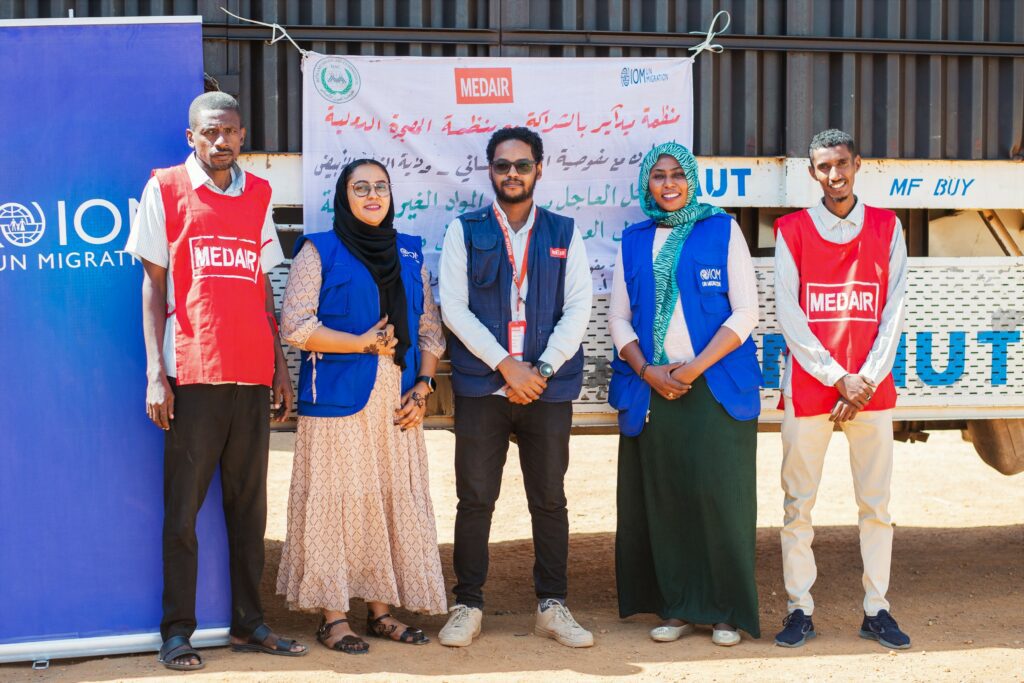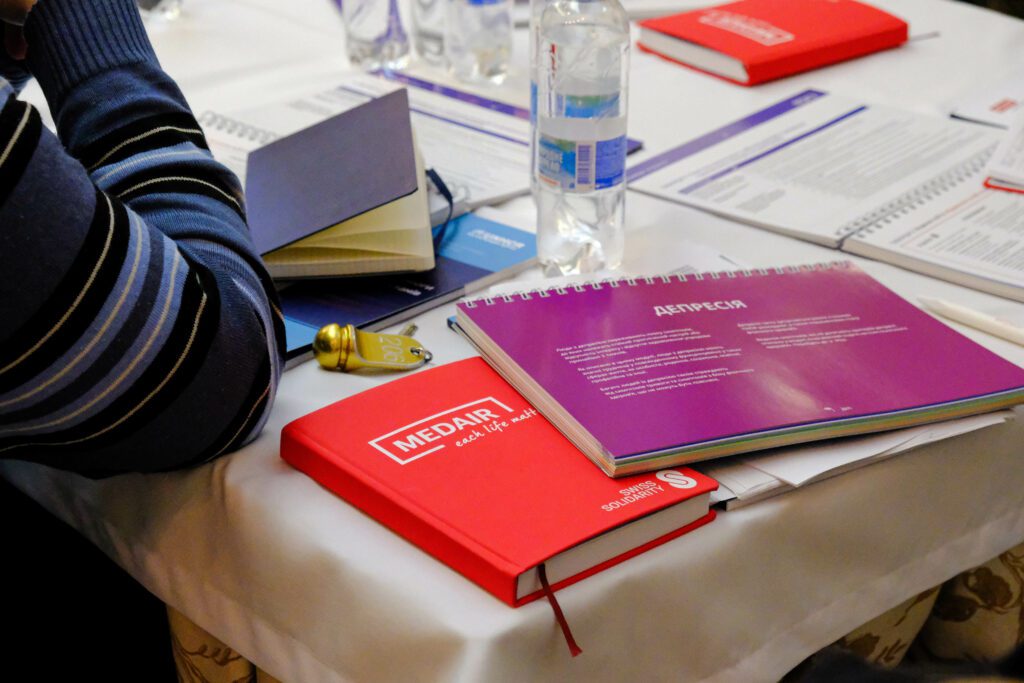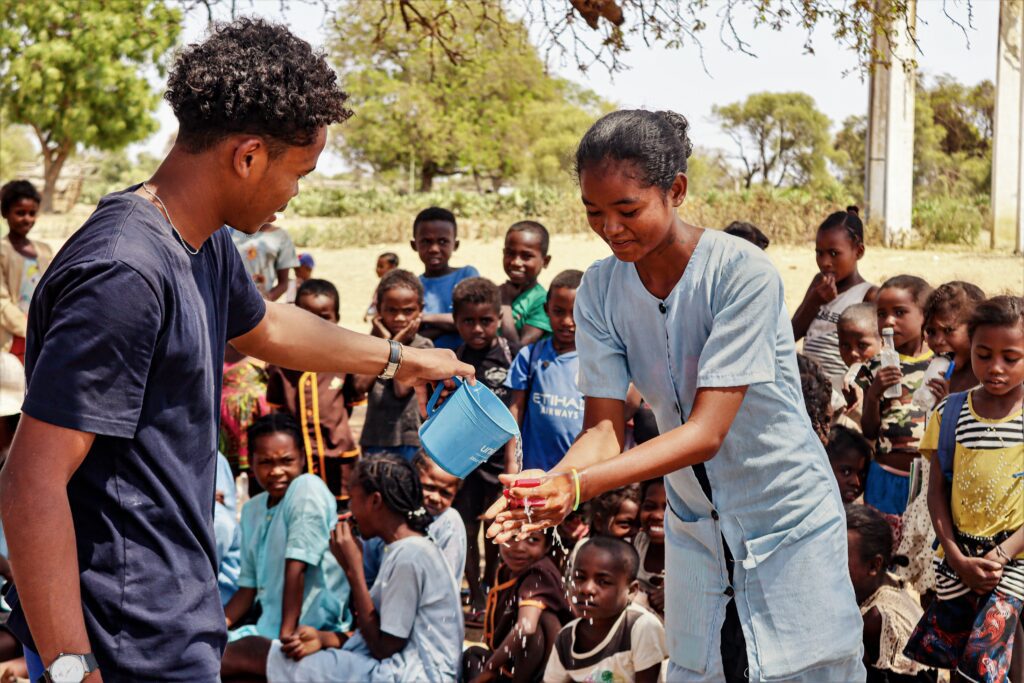On March 22nd, a devastating fire swept through parts of Kutupalong Refugee Camp, home to around 700,000 Rohingya refugees.
Our team in Bangladesh was on the ground within 24 hours to support affected families. But our work goes beyond sudden on-set emergencies: each year, Medair provides thousands of Rohingya families with shelter kits to strengthen and secure homes ahead of the monsoon season.
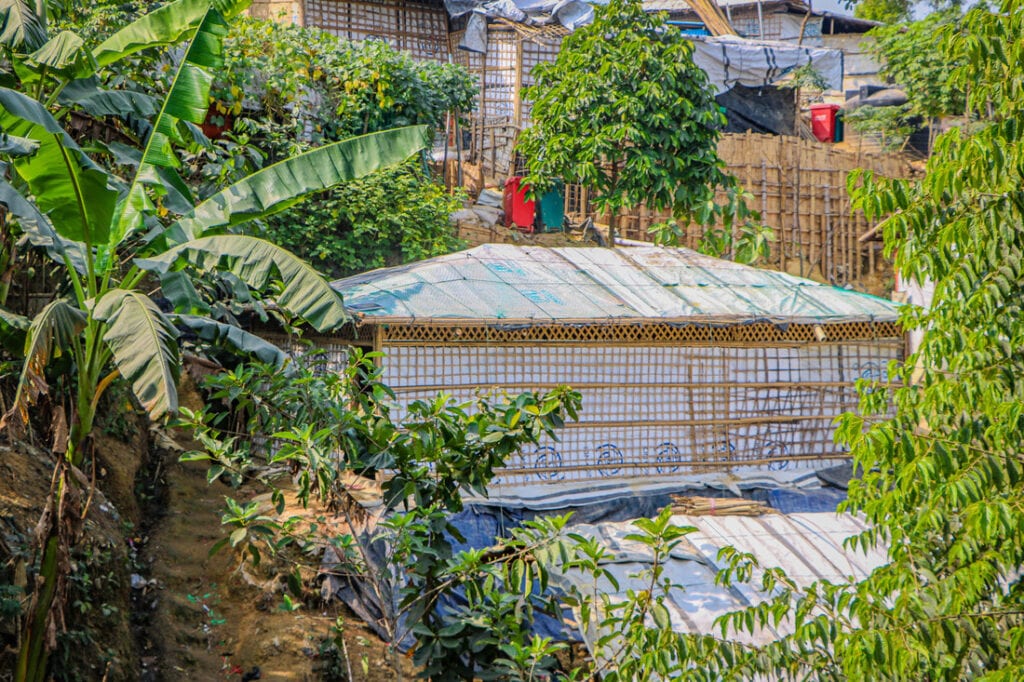
In Kutupalong Camp, permanent structures are not authorised. Refugees live in temporary shelters made of bamboo and tarpaulins. Our teams distributes items that aim to improve living conditions: ‘‘These kits provide more durable and sustainable solutions for families’’, says Khaled Nishan, Medair Project Officer. ‘‘This is especially important to protect homes from the monsoon season and other harsh weather conditions in southern Bangladesh.’’
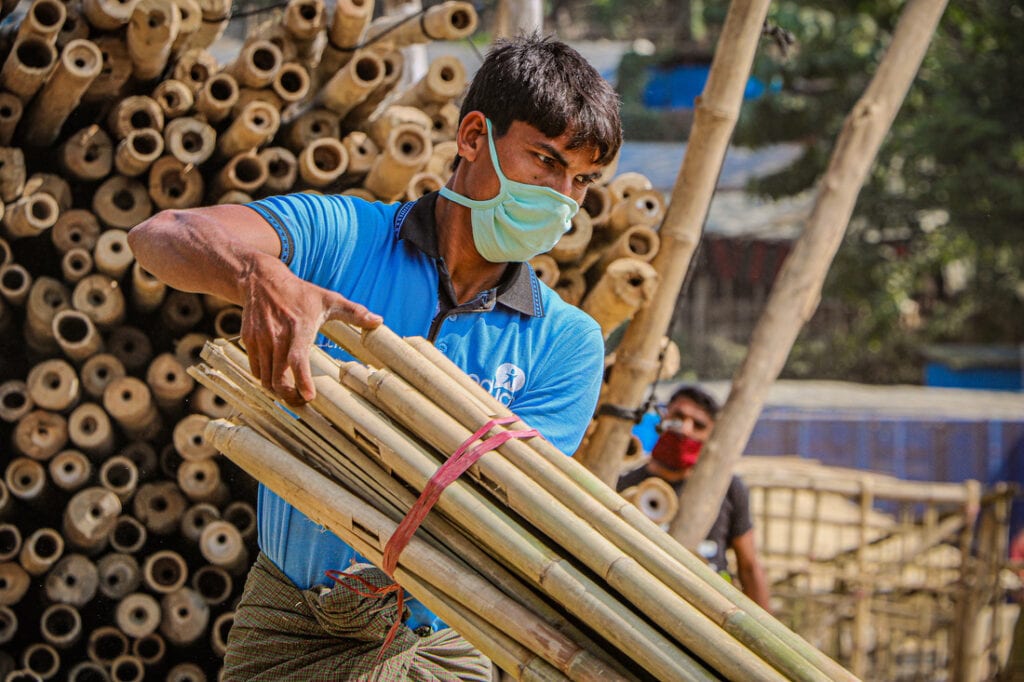
A Rohingya Shelter volunteer prepares bamboo ahead of a distribution at a Medair site in Kutupalong Refugee Camp. Bamboo is among several items – such as ropes, tarpaulins, pipes, padlocks, etc. – which families receive. In 2020, over 28,000 refugees benefited from our shelter services.
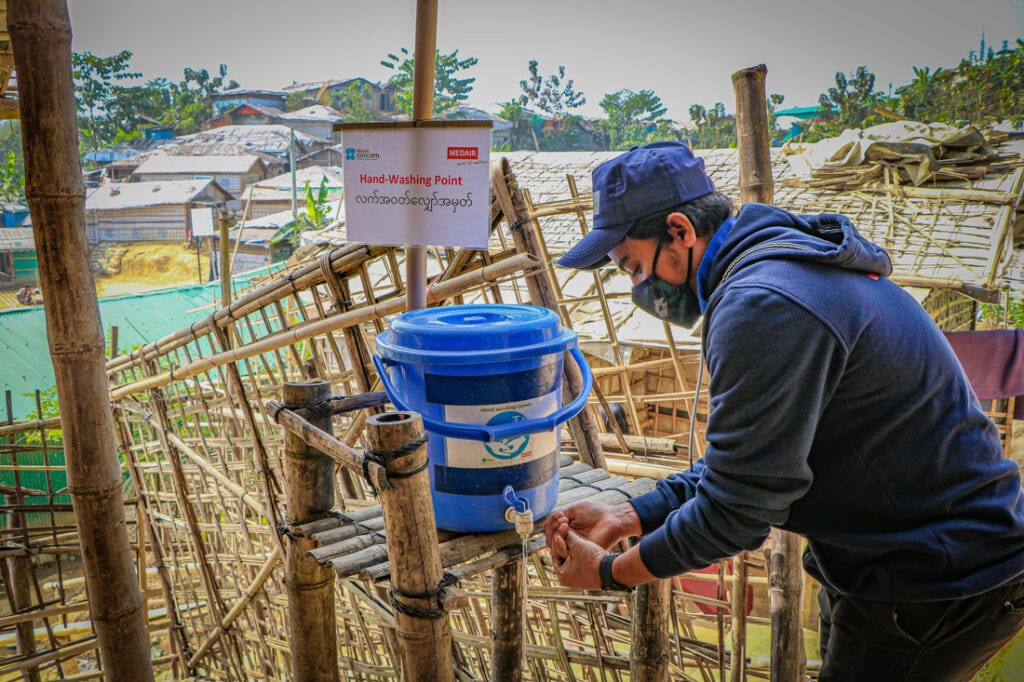
2020 brought an unprecedented challenge for the team: ‘When the pandemic first appeared, access to the camp was restricted,’ recalls Gazi Hossain, Shelter Project Manager. ‘We had to review our expectations for the first months of the year. In time, we were gradually able to resume our activities by integrating COVID-19 guidelines such as mask-wearing, handwashing, temperature screening.’
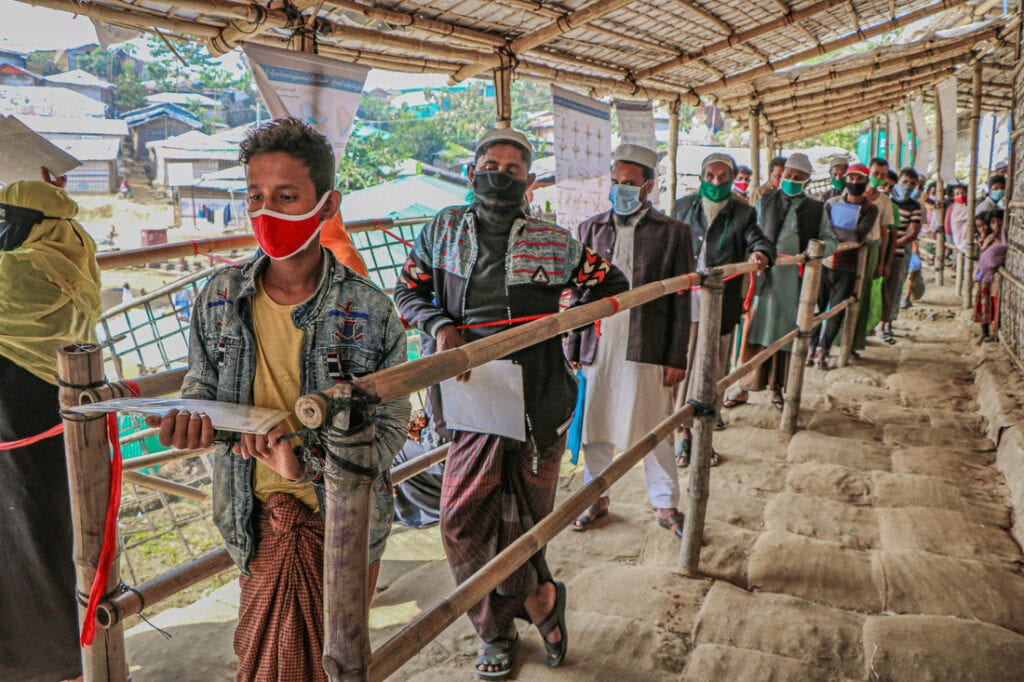
As part of COVID measures and to ensure refugees and staff stay safe, organised social distancing is set up in distribution sites, with each section of the camps scheduled to receive items at specific times.
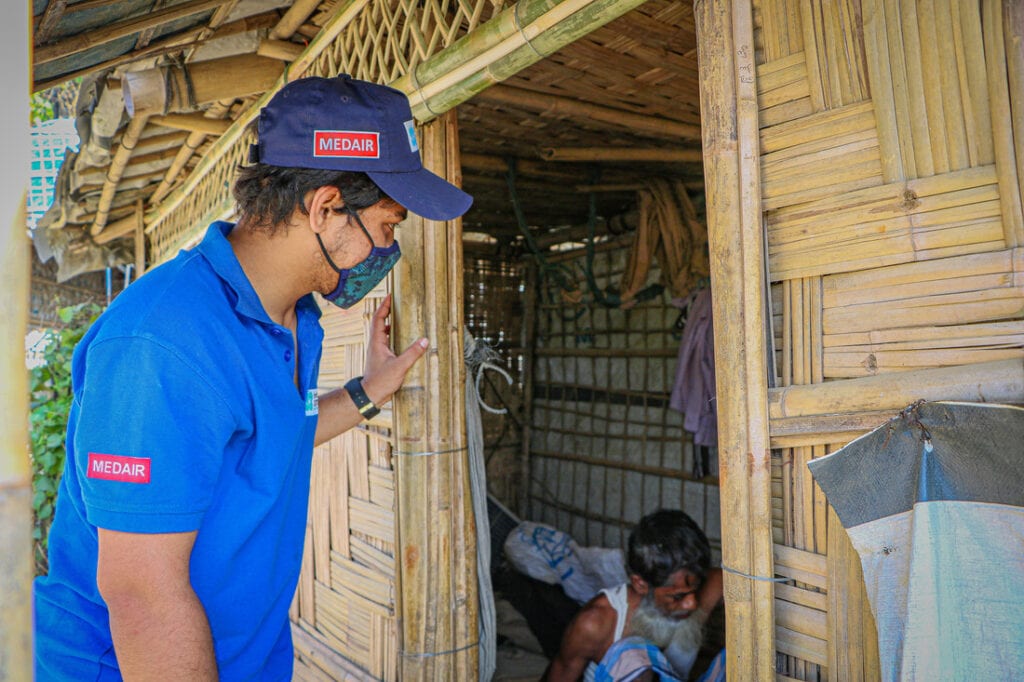
Among recipients, special attention is paid to extremely vulnerable individuals – or EVIs – such as the elderly, single mothers, refugees with a disability or a specific health issue: ‘We provide additional services to EVIs such as delivering items directly to their doorstep and sending carpenters and shelter volunteers to put everything together’, explains Sazzadul Munna, Shelter Project Officer. ‘This intervention is a great step for refugees who are among the most vulnerable, to incrementally improve and secure their homes’, adds Khaled. In 2020 and early 2021, over 300 refugees benefited from this personalized assistance.
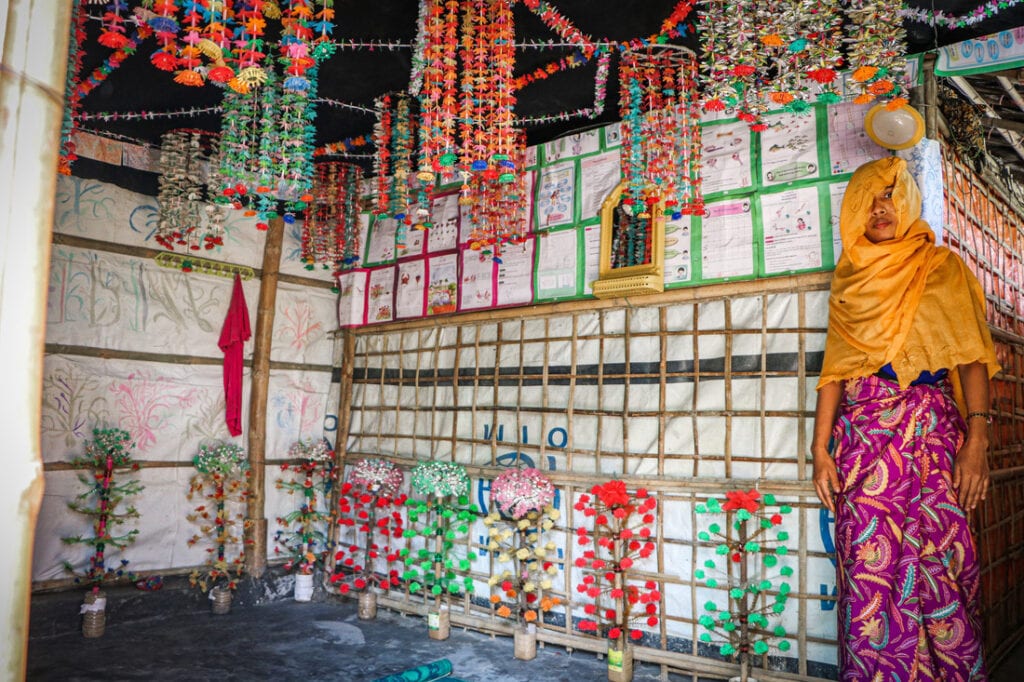
As part of the ‘EVIs’ project, Amina* – a widow – received help from Medair’s team to repair her shelter. She decorated it with her own artwork, adding beauty to her every day surroundings.
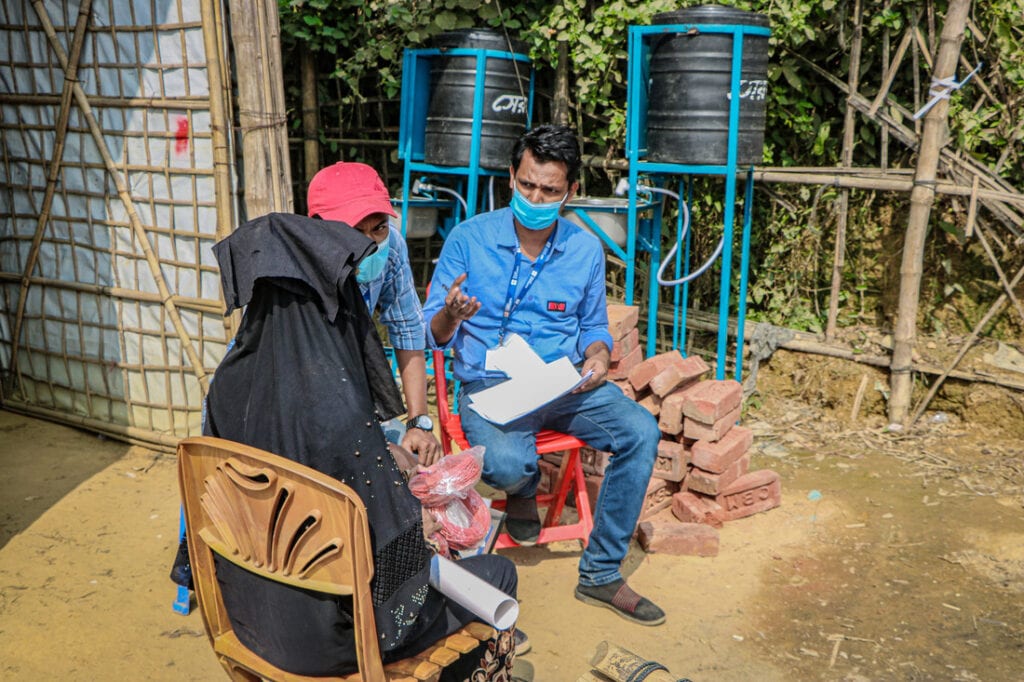
In order to continuously improve services, collecting feedback from recipients is crucial: ‘We are continuously collecting feedback to know if families are satisfied with what they receive,’ shares Sazzadul Munna. ‘After receiving feedback or a complaint, we assess and take the necessary action. If the person identified themselves in the complaint form, we then contact them to let them know the issue is resolved.’
Medair’s Monitoring and Evaluation Team also organises in-depth discussions with individuals as well as focus groups representing different demographics in the camp and offers feedback and recommendations to the Shelter team to improve services.
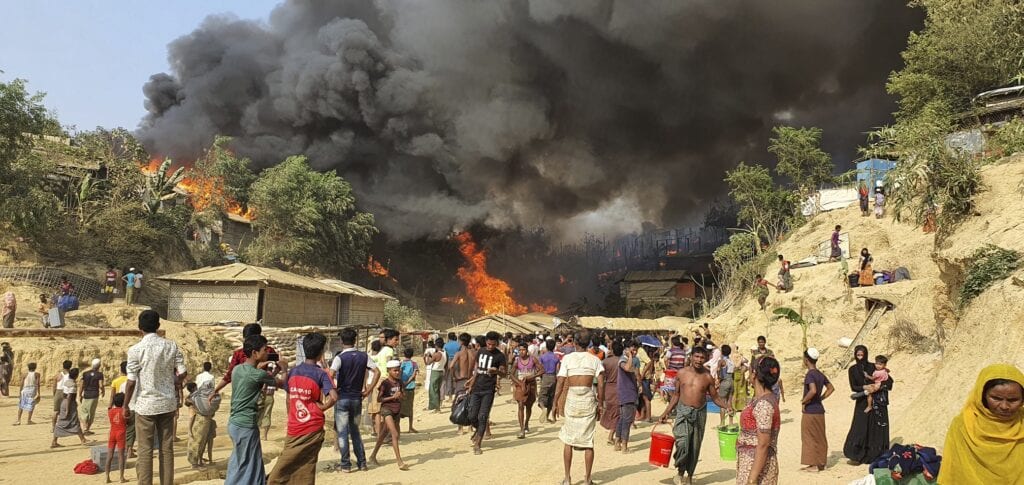
When a devastating fire struck the camp on March 22nd our team was on the ground within 24h and immediately started distributing emergency shelter kits to hundreds of refugees to help them rebuild as home as quickly and as safely as possible.
This work is ongoing. Learn more about Medair’s response and how you can help.
*Name changed for security purposes.
Medair is an international humanitarian NGO that provides emergency relief and recovery services to families made vulnerable by natural disasters, conflicts, and other crises. In Bangladesh, Medair works in partnership with World Concern.
This content was produced with resources gathered by Medair field and Global Support Office staff. The views expressed herein are those solely of Medair and should not be taken, in any way, to reflect the official opinion of any other organisation.


